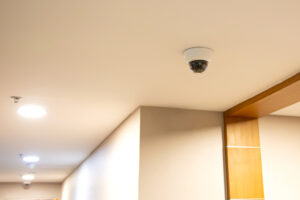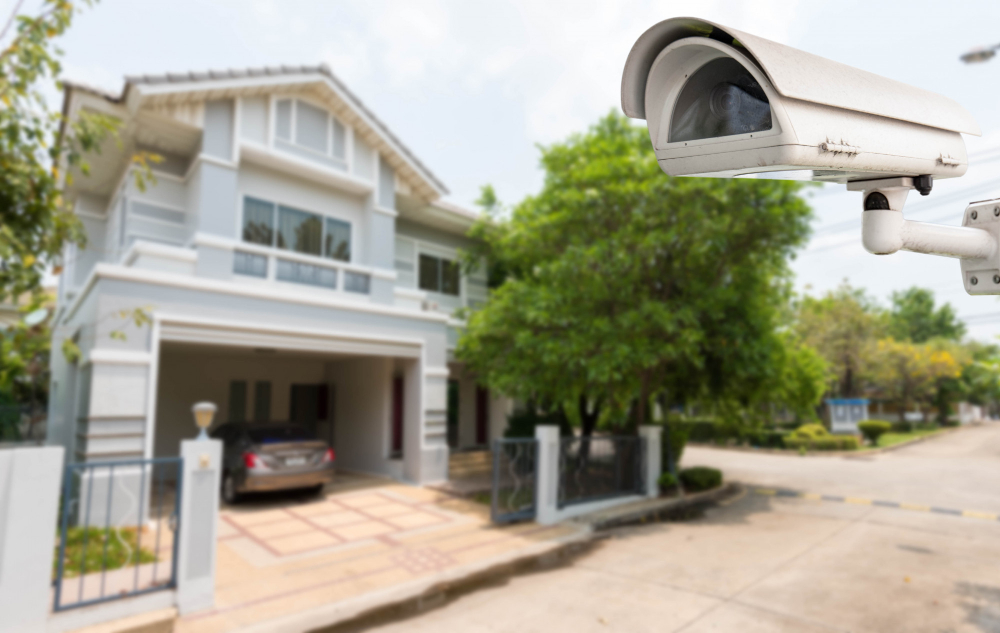Over two million robberies are reported in the US yearly, resulting in $4.6 billion in lost property. However, with a reliable CCTV system, you can protect both your property and family.
Closed Circuit Television video surveillance systems can deter and prevent crimes. They also provide evidence against intruders.
Your Primary Line Of Defense
A reliable security system can protect your family, home, and business from criminals. They deter potential intruders, offer advanced warnings of danger, and allow you a chance to evaluate whether or not to trust the person on the other side of the door.
A Crash Course On CCTV Surveillance Systems
CCTVs come jam-packed with different features to protect you and your family. However, all surveillance systems have the following:
- Surveillance cameras
- A reliable monitor
- Connecting wires
Exterior VS Interior Cameras
You can use outdoor cameras indoors. However, you can’t place indoor cameras outside because indoor cameras are prone to physical or weather damage, unlike outdoor cameras which have IK and IP protection ratings.
Another notable difference is the viewing angles. Outdoor cameras have broad viewing scopes to observe larger land areas and are equipped with night vision. Interior cameras usually do not have these features.
Securing The Outside
Strategically placing your outdoor cameras is usually all it takes to protect your home. Some of the most common areas for outdoor CCTV equipment are:
- Walkways
- Doorways
- Windows
- Dark corners
- Driveways
The number and the placement of the equipment depend heavily on the owner’s needs, location, infrastructure, and other factors. There isn’t a single system for all needs.
The equipment will be installed using either wired or wireless technology. The cameras will be connected to one control center. A wireless network or DVR will allow you to retain access to the footage for review or recording.
You can also program the equipment to record at specific times, on-demand, or by motion detection.
Purchasing CCTV Cameras
When buying surveillance systems, there are many things to consider: coverage, storage, resolution, type of camera, weather resistance, and many more! Understand your needs so you can start narrowing down your options.
Kinds Of Surveillance Cameras
Surveillance cameras can be categorized into a few different types. This section will explain those thoroughly.
Analog Cameras
This type of camera is the most common. They are more affordable and rely on CCTV surveillance software.
Analog cameras are connected to a monitor or DVR, allowing real-time video relay. The video is compressed and stored in a hard drive or converted into digital footage for internet streaming.
The DVR is responsible for alarms, notifications, and other scheduled operations.
IP Cameras
IP cameras used to be more expensive than analogs but have become relatively more affordable recently. They require a connection to the internet or a network to function.
These cameras have built-in DVR capabilities, meaning they compress, convert, and stream their videos. Storage is also more flexible with IP cameras because they usually come with SD card slots.
Some IP cameras also have network video recorders ready, allowing them to stream videos to smart devices.
IP cameras also have better resolution. The only disadvantage is they can cost more compared to analog cameras. However, they are cheaper to install and maintain.

Other Features To Consider
It is highly recommended to research the different camera features available for your budget to ensure you’re making the right choice.
Wireless VS Wired Equipment
Wired cameras have higher picture quality and can stream more reliably because battery life isn’t a limitation. However, they are less sturdy against the weather and are easier to hack. They are also limited by electrical outlets.
Wireless cameras are easier to conceal and are more versatile. However, you will need batteries, which can be inconvenient and pricey.
Weather-Resistant Equipment
The equipment you need also depends on the climate. Aside from the weather, you also need to consider threats such as insects, sun damage, and vandalism.
Shapes Of The Camera
A camera can either look obvious or discreet. Obvious cameras like dome cameras are designed to stand out and deter criminals.
Discreet cameras can be hidden inside items, behind plants, and many more. Bullet cameras stay pointed in one direction and can’t be zoomed, so they are easy for criminals to avoid. However, they work well in doorways.
Color VS Black-And-White Cameras
Black and white cameras are cheaper but provide lower film quality. On the other hand, color cameras can help identify perpetrators quickly, thanks to the added detail of color.
Pan, Tilt, & Zoom VS Wide-Angle Lens Cameras
Wide-angle lens cameras can cover a large area, sometimes up to 40 feet. This is good for spaces like backyards.
Point, tilt, and zoom (PTZ) cameras can move and capture different angles, unlike the wide-angle lens cameras. You can control them remotely to capture the best footage.
Day/Night VS Night Vision Cameras
Day/night cameras can capture clear images regardless of the amount of light in the shot. Meanwhile, night vision or infrared cameras are great for low-light situations.
What Is The Finest Surveillance System?
The most exemplary system for you depends on many factors such as budget, location, lighting, size, existing equipment, and network access. Once you’ve decided on what system to implement, you can either get professional help or do it yourself.
Secure Your Life
Do you want to find out more about CCTV systems? Follow our blog, or contact us with questions and comments!

